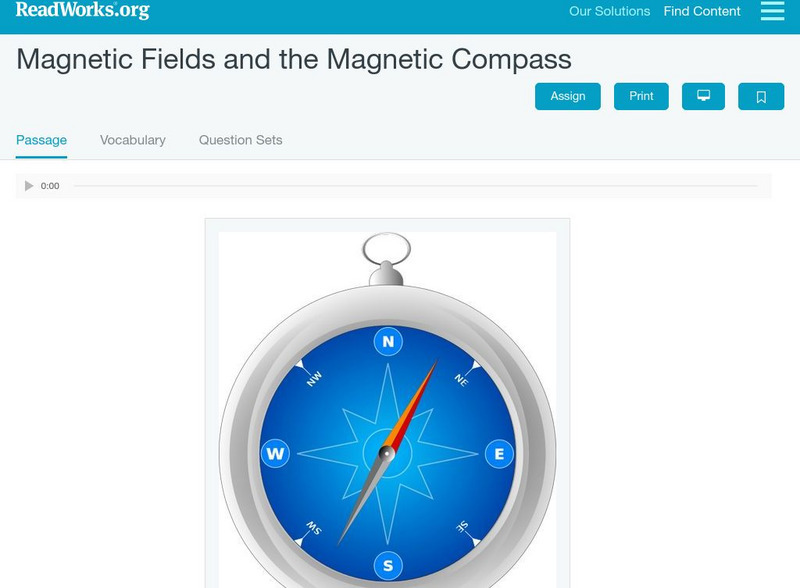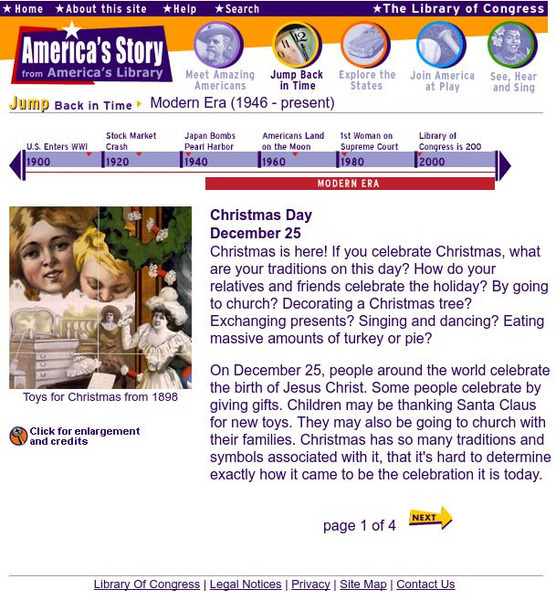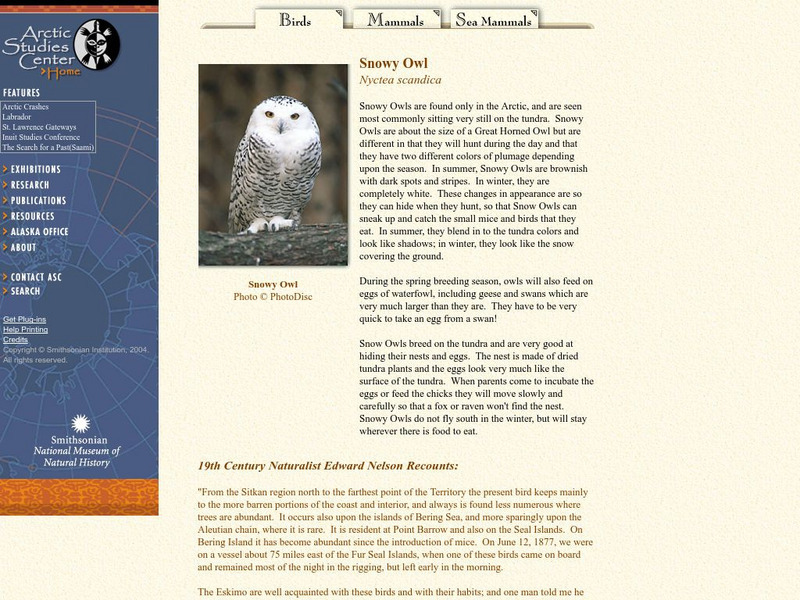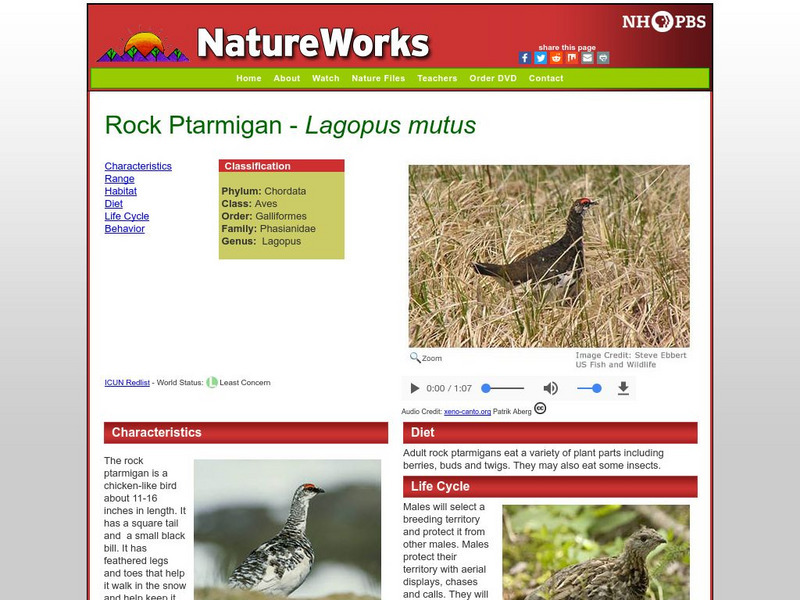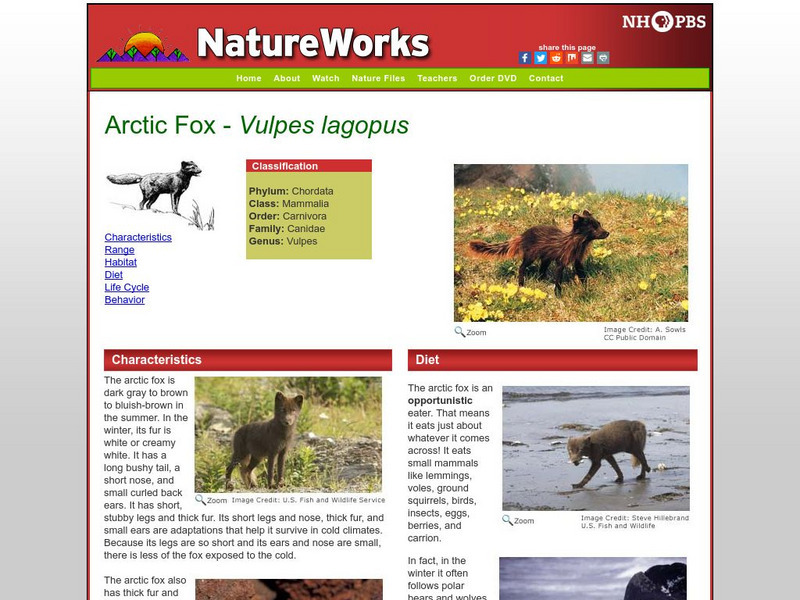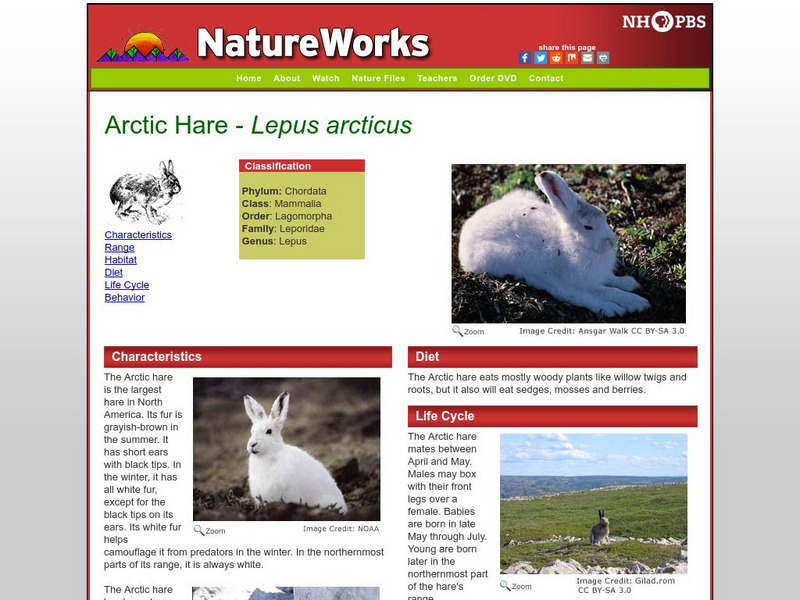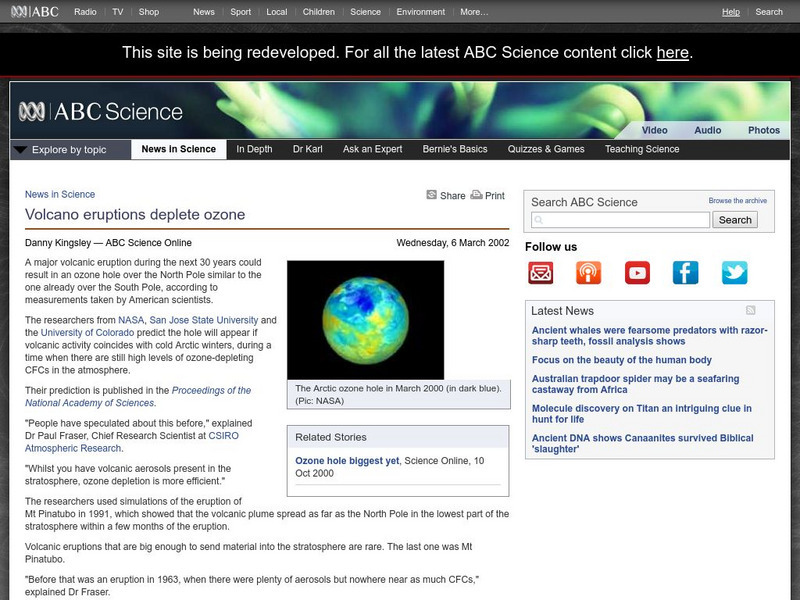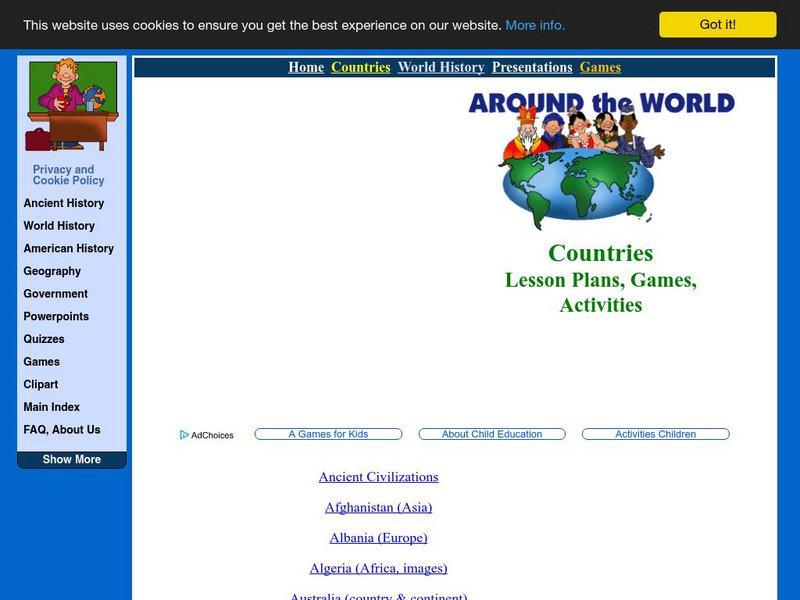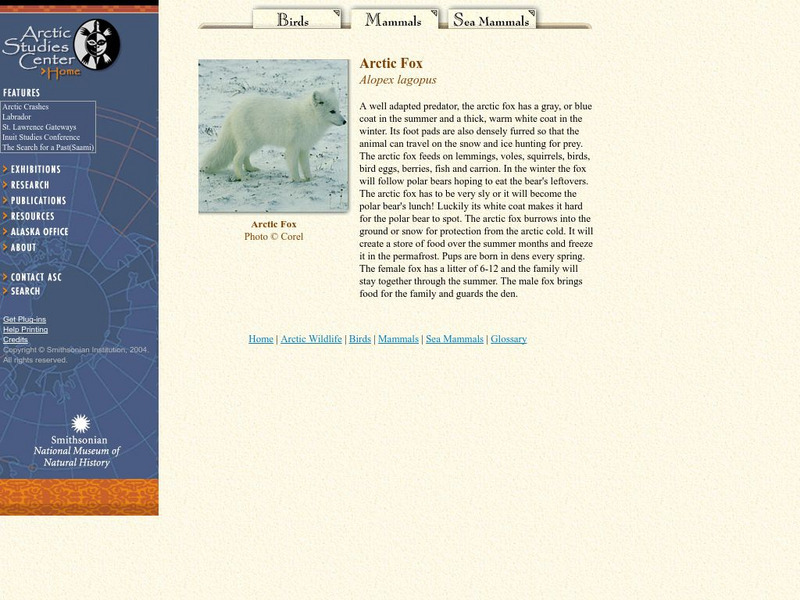Hi, what do you want to do?
Read Works
Read Works: Electric and Magnetic Forces and the Modern Day Compass
[Free Registration/Login Required] An informational text about how a compass works using electromagnetic force. A question sheet is available to help students build skills in reading comprehension.
Missouri Botanical Garden
Missouri Botanical Garden: Tundra Animals
Explore this comprehensive resource on the birds and mammals of the tundra. This resource features information such as diet, class, order, size, habitat, conservation range and the like.
Smithsonian Institution
National Museum of Natural History: Laysan Albatross
This Smithsonian website has a brief, but thorough, article on the Laysan Albatross that also includes a picture.
Smithsonian Institution
National Museum of Natural History: Arctic Studies Center: Lemmings
This Smithsonian website has a brief, but thorough, article on the Lemmings that also includes a picture and a quote from naturalist Edward Nelson.
Library of Congress
Loc: America's Story: Christmas Day, December 25
Christmas traditions are unique to each family. But we share a common origin of this special holiday. Learn about the fundamentals of this celebration at this Library of Congress site.
Smithsonian Institution
National Museum of Natural History: Snowy Owl
This Smithsonian website has a brief, but thorough, article on the Snowy Owl that also includes a picture and an extensive quote from the 19th Century naturalist Edward Nelson.
PBS
Nh Pbs: Nature Works: Rock Ptarmigan
Discover how the Rock Ptarmigan lives in the Tundra when you check out this site. This resource features photographs, information on characteristics, life cycle and more.
PBS
Nh Pbs: Nature Works: Arctic Fox
Learn more about the arctic fox through this clear and concise site. This resource features photos, characteristics, behavior information and more about this fascinating mammal.
PBS
Nh Pbs: Nature Works: Polar Bears
This site created by NatureWorks focuses on the Polar Bears. The content of this resource includes a look at this species' characteristics, range, habitat, diet, behavior and life cycle.
PBS
Nh Pbs: Nature Works: Arctic Hare
Explore the world of the arctic hare through this clear and concise site. Students will learn more information on the characteristics, range, habitat, food, reproduction and behavior of this furry creature through this resource.
Curated OER
Finding the Two North Poles
Very simple directions for making a sundial and a question and answer section that explains why and how a sun clock works.
Curated OER
Most Recent Plan of the North Pole and Surroundings, by Frederick De Wit, 1715
This map provides a look back in time at the search for a navigable route for the Northwest Passage.
Curated OER
Stanford's Map of the Coutries Around the North Pole
This map provides a look back in time at the search for a navigable route for the Northwest Passage.
Australian Broadcasting Corporation
Australian Broadcasting Corporation: News in Science: Volcano Eruptions Deplete Ozone
From ABC News in Science, this March 2002 article describes the ozone depletion from volcanoes. According to research, a hole in the ozone layer could form over the North Pole due to one more major eruption.
Encyclopedia Britannica
Encyclopedia Britannica: Matthew Alexander Henson
This entry from Encyclopedia Britannica features Matthew Alexander Henson, an American black explorer who accompanied Robert E. Peary on most of his expeditions, including that to the North Pole in 1909.
ClassFlow
Class Flow: Magnets
[Free Registration/Login Required] This flipchart helps students differentiate between and identify objects that are attracted by a magnet and those that are not attracted by a magnet.
Other
Boat Safe Kids: Longitude and Latitude
This website starts at the very beginning and explains how round globes are transferred to flat maps. Then they explain the use of longitude and latitude.
Lin and Don Donn
Lin and Don Donn: Countries and Continents
This resource provides links to ideas and for teaching about the Arctic Circle and about the Antarctic. There are also links to additional sites.
Smithsonian Institution
National Museum of Natural History: Arctic Studies Center: Arctic Fox
This site takes a brief look at the Arctic Fox, focusing on this animal's adaptations to the harsh climate of its environment.
Curated OER
Science Kids: Science Images: Aurora Borealis, Northern Lights
The aurora borealis (also known as the northern lights) is a spectacular light display that can be seen at night in regions near the North Pole (auroras can also be seen near the South Pole). Auroras occur because of charged particles...
Curated OER
Athropolis: Map of the Arctic
This is a useful map for orienting students to where the Canadian Arctic lies in relation to other Arctic countries. The centre of the map is the North Pole. Clicking on the map brings up weather reports for various locations.
Curated OER
Educational Technology Clearinghouse: Clip Art Etc: Robert E. Peary
(1856-1920) "An American Arctic explorer, famed as the discoverer of the North Pole." -Foster, 1921
Curated OER
Educational Technology Clearinghouse: Clip Art Etc: Robert E. Peary
An American explorer who claimed to have been the first person to reach the geographic North Pole.
Curated OER
Educational Technology Clearinghouse: Clip Art Etc: Robert Peary
An American explorer who is usually credited as the first person, on April 6, 1909, to reach the geographic North Pole.
Other popular searches
- North Pole Animals
- Magnetic North Pole
- The North Pole
- Science North Pole
- North Pole and Santa
- Google Earth North Pole
- North Pole Lessons
- Expeditions North Pole
- Artic North Pole
- Attic North Pole
- Exploration of the North Pole
- Preschool North Pole





